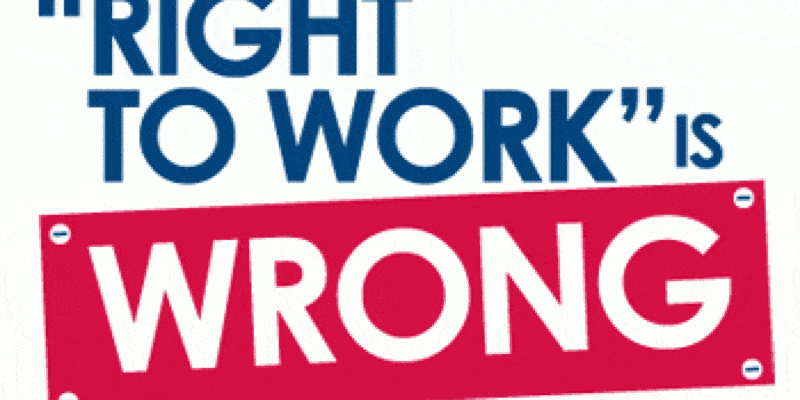His fight against “right-to-work” should inspire more Democrats to challenge the atrocious Taft-Hartley law.
By John Nichols
JANUARY 7, 2019
Congressman Mark Pocan and Senator Bernie Sanders sent an important-if, sadly, little noted-signal last year about how to stand up for worker rights. They introduced a national Workplace Democracy Act that proposed to knock down the barriers to union organizing and collective bargaining that have been erected by politicians who serve as errand boys for corporate power.
Decrying “a corporate-driven agenda that makes it harder for middle class families to get ahead,” Pocan, the Congressional Progressive Caucus co-chair who is a member of the International Union of Painters and Allied Trades union, announced that “The Workplace Democracy Act restores real bargaining rights to workers and repeals the right to work laws like those that [Wisconsin Governor Scott] Walker has used to undercut American workers.”
Rejecting the caution that many Democrats have displayed with regard to struggles for labor rights, Pocan and Sanders went to the heart of the matter. Their legislation proposed to “end right to work for less laws by repealing Section 14(b) of the Taft Hartley Act, which has allowed 28 states to pass legislation eliminating the ability of unions to collect fair share fees from those who benefit from union contracts and activities.”
So-called “right to work” laws were enacted more than 70 years ago in many Southern and border states, where segregationist politicians (most of them Democrats) sought to block the rise industrial unions that organized workers of all races. But, in recent years, these laws have moved north-to historic industrial states such as Wisconsin and Michigan. They’re not popular. Just last year, Missouri voters rejected a right-to-work proposal by a 2-1 margin.

